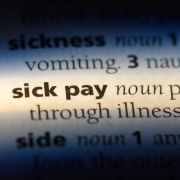ADVANCE HEALTHCARE DIRECTIVES
The Assisted Decision Making (Capacity) Act 2015 was enacted with a view to reforming the legal framework for those who require or may require assistance in exercising their decision-making capacity. Since enactment, steps have been taken to establish the Decision Support Service (the ‘DSS’) which will have regulatory and oversight functions over the new framework.
After much anticipation, it is now understood that the remaining substantive provisions of the Act will be commenced in June 2022. The Advance Healthcare Directive (‘AHD’) is one of the new concepts being introduced to Irish law by the Act.
An AHD sets out the instructions of its creator (who must have attained the age of 18 years) and who at the time of execution must have capacity as to their preferences for medical treatment in the event that they do not have capacity at a future time to give their own instructions. These instructions can include refusal of treatment where such refusal and its circumstances can be clearly identified in the AHD. The AHD will be the first time in Irish law in which the future preferences as to medical choices can be formally recorded in law.
An AHD can also appoint a Designated Healthcare Representative (‘DHR’) (who must have attained the age of 18 years). The function of the DHR will be to advise and interpret the will and intentions of the creator of the AHD regarding treatment by reference to the AHD and / or to consent to or refuse treatment on behalf of the creator (up-to and including life-sustaining treatment) based on their known will and preference and by reference to the AHD. It is important to the note that the DHR (and the AHD) will only have power or be referred to in the event that a person does not have capacity to make decisions for themselves at the time of treatment. In the act “treatment”, in relation to a person, means an intervention that is or may be done for a therapeutic, preventative, diagnostic, palliative or other purpose related to the physical or mental health of the person, and includes life-sustaining treatment
An AHD can be created by any person aged eighteen or over who has sufficient mental capacity, The AHD must be in writing and signed by the person making creating the AHD and two qualifying witnesses (at least one of which must not be immediate family of that person). The AHD must also be signed by a Designated Healthcare Representative (if one is appointed in the AHD).
It is important to note that an Enduring Power of Attorney (if one is made) does not grant the attorney(s) under that document the powers of a DHR and if your future healthcare decisions are a matter of concern to you, you should consider putting in place an AHD regardless of whether you have previously created an Enduring Power of Attorney.
If you have any questions about Advance Health Care Directives or wish to create an Advance Healthcare Directive or wish to make an Enduring Power of Attorney, please contact Ronan Healy at rh@ofx.ie .
Ronan Healy








